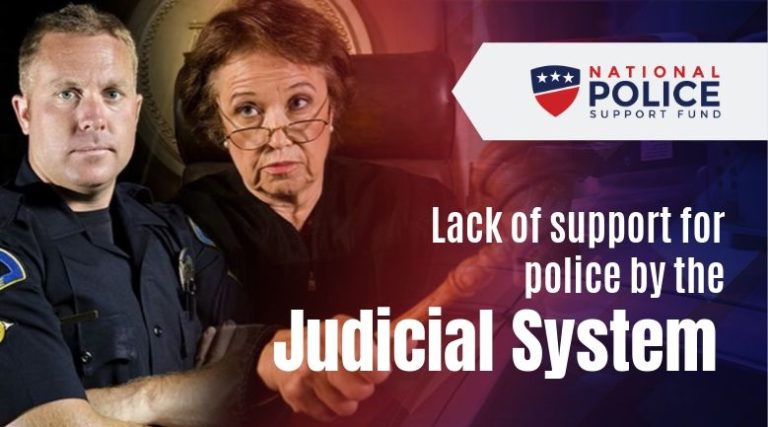In the United States, law enforcement and the judicial system are supposed to work hand-in-hand. Granted, they have different duties and responsibilities. However, in many cases judges do not hold up their end of the bargain when they hand down light sentences to convicted criminals; criminals who police officers put their lives on the line to apprehend and bring to justice. Indeed, without strong law-and-order judges, the work of police officers is often futile. Sometimes, police are forced to re-arrest criminals released on light sentences, making their jobs all the more dangerous. Don’t believe it? Here are three examples of weak judges handing down lenient sentences, with no regard to the police officers who worked to bring these criminals to justice.
California sentencing policies put communities at risk
In 2011, the state of California overhauled its sentencing guidelines to be far more lenient, and the effects have been a disaster. In the first several years following the adoption of AB109, the Governor’s Public Safety Realignment law, violent crime in California has skyrocketed. Criminal Justice Legal Foundation President MIchael Rushford summed up the effects of the law on his state.
“There is no question that soft-on-crime sentencing policies beginning with the 2011 adoption of AB109, the Governor’s Public Safety Realignment law, have created this environment. With more than 30,000 habitual felons left in California communities under this law, and no prospect of a prison sentence for new drug and property convictions, Realignment has turned our county jails into revolving doors,”
And he is right. Violent crime rates in all of California’s major cities has increased significantly since 2011 and it is police officers who are now forced to confront criminals over and over again, criminals who should be in jail rather than on the streets.
Heroin dealer, child molester gets probation

In 2018, a Massachusetts judge faced impeachment over his sentencing of a heroin dealer. Judge Timothy Q. Feeley sentenced Manuel Soto-Vittin to two years of probation after his conviction in a 2015 heroin and cocaine dealing charges.
In a pre-sentencing hearing, Judge Feeley stated that were Soto-Vittini a U.S. citizen, he would have sentenced him to jail time. However, the judge said that Soto-Vinni’s conviction would mean he would be deported from the United States which is why he opted for the lenient sentence of probation rather than jail time. Soto-Vinni was not deported because, according to Immigration and Customs Enforcement, his conviction was “just under the legal threshold” to trigger deportation. So, thanks to Judge Feeley, a convicted heroin dealer was released back into the Salem community.
And as if that weren’t bad enough, a judge in Oklahoma demonstrated that no crime is too heinous to hand down an appropriate sentence. In February of 2018, a convicted child rapist in Oklahoma was sentenced to 15 years… Not of prison time, not even house arrest, but 15 years of probation. Benjamin Lawrence Petty pled guilty to first degree rape and forcible sodomy of a 13 year old girl following his arrest. Petty, who is blind, was issued the light sentence by Judge Wallace Coppedge partially on the basis of his disability. An online petition to remove Judge Wallace received over 60,000 signatures from outraged citizens. Judge Wallace, however, remains on the bench.
As citizens, we have a duty to hold lenient judges accountable and that means becoming informed and engaged in judicial elections in our communities. To combat crime and keep police officers safe, we must stop electing judges who perpetuate the problem of crime with their leniency.
Without strong law and order judges, the work of police officers is futile. When judges issue lenient sentences or low bonds to violent criminals, police officers are often forced to confront those same dangerous individuals again, thus leading to increased risk on the job. Here are just a few examples of judges who issued extremely low sentences and bonds to dangerous criminals.









